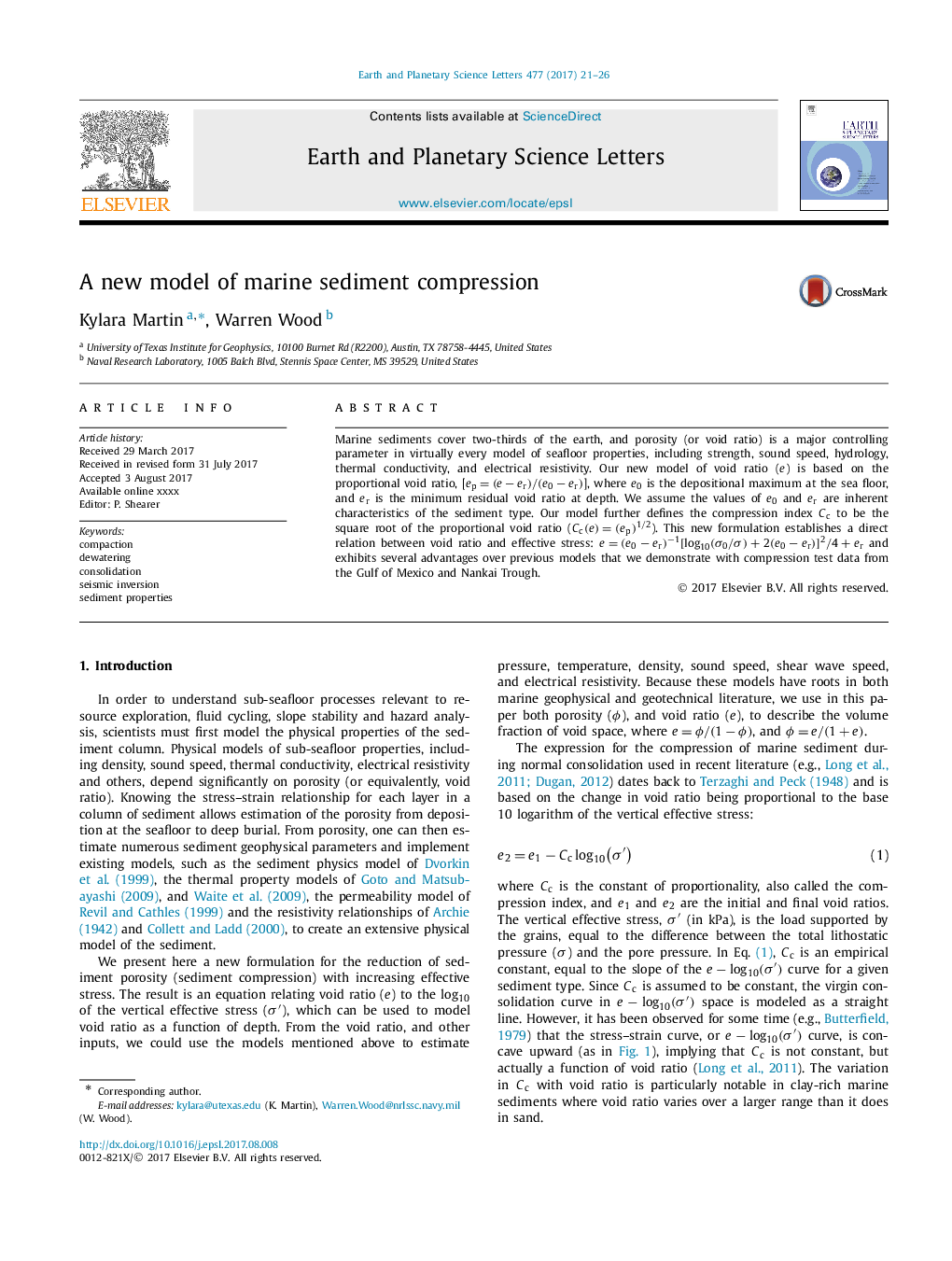| Article ID | Journal | Published Year | Pages | File Type |
|---|---|---|---|---|
| 5779529 | Earth and Planetary Science Letters | 2017 | 6 Pages |
Abstract
Marine sediments cover two-thirds of the earth, and porosity (or void ratio) is a major controlling parameter in virtually every model of seafloor properties, including strength, sound speed, hydrology, thermal conductivity, and electrical resistivity. Our new model of void ratio (e) is based on the proportional void ratio, [ep=(eâer)/(e0âer)], where e0 is the depositional maximum at the sea floor, and er is the minimum residual void ratio at depth. We assume the values of e0 and er are inherent characteristics of the sediment type. Our model further defines the compression index Cc to be the square root of the proportional void ratio (Cc(e)=(ep)1/2). This new formulation establishes a direct relation between void ratio and effective stress: e=(e0âer)â1[log10â¡(Ï0/Ï)+2(e0âer)]2/4+er and exhibits several advantages over previous models that we demonstrate with compression test data from the Gulf of Mexico and Nankai Trough.
Related Topics
Physical Sciences and Engineering
Earth and Planetary Sciences
Earth and Planetary Sciences (General)
Authors
Kylara Martin, Warren Wood,
